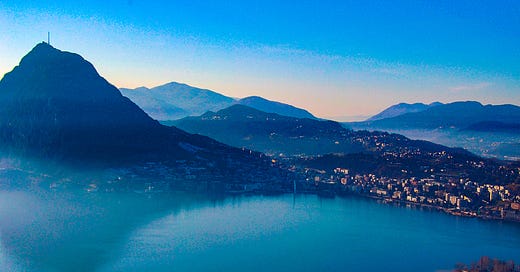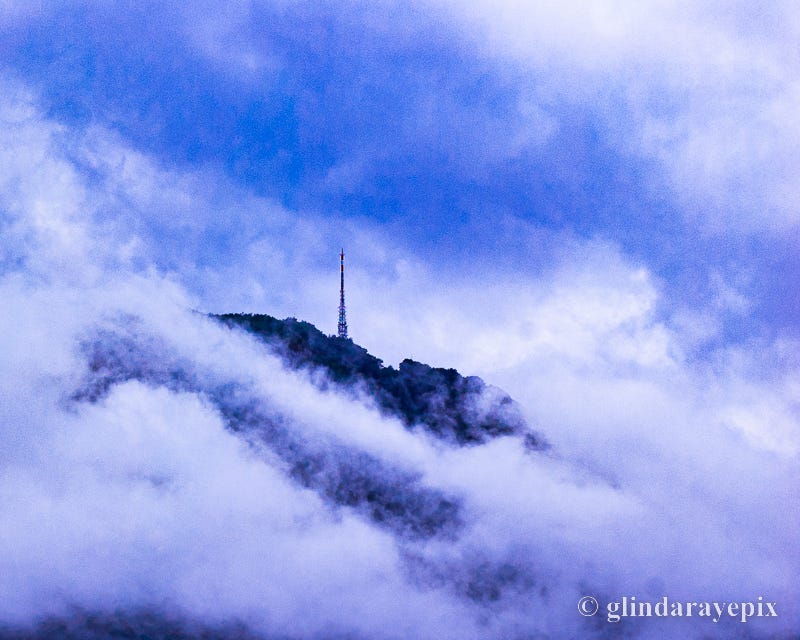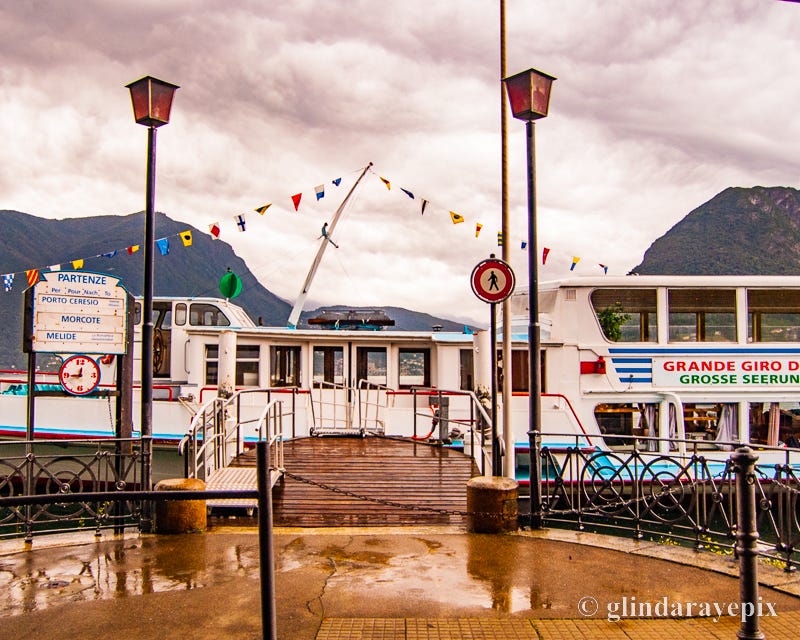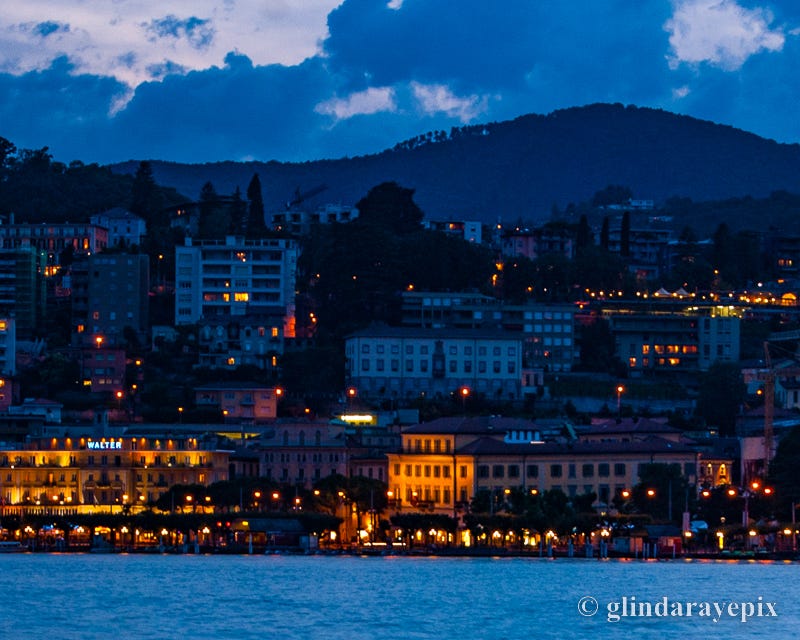Running a day late this week—the one obstacle we never anticipated to timely travel writing being travel itself. Starting Monday, we’ll be on the move for the next three weeks, training up, down, and around the Indian subcontinent, so please bear with us!
Meanwhile…
Of all the places the Shipley clan has ever called home, Lugano, in the southern Swiss Canton of Ticino, is the only long-term residence where we never bought a property. Prices were just too high, especially on the glorious slopes of Paradiso and Montagnola, or in Castagnola-Cassarate on Monte Brè, where we hung our hats and hiking sticks. And for that, we could thank the house-shoppers of the Sicilian Cosa Nostra, the Neapolitan Camorra, and especially the Calabrian 'Ndrangheta. Because Lugano, as the closest Italian-speaking community out of the reach of Italian prosecutors and revenue agents, has made a living out of safeguarding what the financial world likes to call "Black Money".
There's a special cachet to visiting your bank in Lugano. You don't arrive without an appointment, and you don't walk in through a grandiose entrance past a line-up of obedient cashiers and eager lending officers. You wait by a non-descript door for the camera to transmit your likeness, then you take an elevator alone to the fourth floor, where an attractive man or woman escorts you into a tastefully neutered conference room. And although no one is tacky enough to mention the utter insignificance of your pile of dough, you can sense it. Because this is Switzerland, after all. For all the American attempts to penetrate the mysteries of the Swiss and their finances, the vast mega-piles of money just keep mushrooming year after year.
Money in these parts feels no need to advertise, and that's just fine for the cross-border fugitives who provide the bulk of it. You wouldn't even know it was here, if not for the half-finished construction projects that require vast outlays of expenses without ever coming to fruition (in some circles, it's called "laundering"). And then, you notice the dazzling bling and sculpted bodies on the twenty-somethings wheeling their eighty-something amours around the Parco Ciani. And the neat perfection of those gravel- and flower-lined paths, the orderly procession of Ferraris and Bentleys along the Riva Abertolli, and the phalanx of correct, spotless Polizia waiting to pounce on the slightest infraction of—non-financial—laws.
So if you don't have a big enough pile to spend your days watching and counting, what is there to do (besides playing Spot-the-Mobster) in this paradisical Swiss community?
As it turns out, quite a lot. Lago di Lugano is the lone Swiss entry in what most people call the Italian Lake District. Lakes Maggiore, Como, and Lugano (and farther away, Iseo and Garda) drain the Swiss Alps and feed the Po River that stretches from Turin in the east all the way to the western Veneto coast.
Como gets most of the paparazzi and publicity, and we've never understood it, because Lugano, being Swiss, is by far the most pristine and tourist-friendly. The roads are clean and well-marked, the buses, trains, and ferries leave on time, and if anyone litters, the trash and Shi Tsu droppings disappear within minutes. Yet there's a distinct tightening when you cross the border from Italy, a sense that no nonsense will be tolerated. It's a subtle reminder that Ticino might look like loosey-goosey Italy, but it thinks and feels like buttoned-up Switzerland.
One of our favorite recreations here is a day-trip up one of the long, winding fingers of the lake. Head east over the passes to Lago di Maggiore for a gander at Locarno or the odd, submerged Nativity Scene of Lavina-Mombello. Picture the young Italian partisans holed up here, plotting Mussolini's downfall and scampering across the Swiss border when the Fascisti got too close. Picture Allen Dulles of the OSS coming here to negotiate with the German SS General Karl Wolff for the surrender of northern Italy—handing out a personal pardon (for 300,000 murders) in return for a few extra days of peace.
To the east, the road from Lugano to Saint Moritz pops through a tongue of Italy before hugging the deep-set Inn River and one scenic lake after another into the heart of Graubünden and German Switzerland. To the north, via the castles of Bellinzona (obstinately mispronounced by us children as “Bella Nosa”), you can climb the Saint Gotthard Pass into Altdorf (of William Tell apple-shooting fame) and Luzern.
Or you can just hang out in the park, go for a swim at the Lido San Domenico, hike up and down the nearest Alp, and wait for the wine bars around Piazza Riforma to open. For special nights with a sense of history, there's the gourmet kitchen at Villa Principe Leopoldo, the onetime home-away-from-Prussian-home of the Hohenzollern dynasty.
Ben's father passed away in Lugano at the profound age of eighty-seven, and that event can't help but color our recollections of traveling here. Fortunately, we were able to enlist local friends and family in organizing the memorial on a blistering hot July afternoon at the ornate chapel on the way up to Breganzona. And the Ticino Canton officials proved unfailingly kind and helpful in resolving all of the details, important and petty, that attend such a misery.
On Dad's instructions, we spread his ashes in the freezing cold waters rushing down from his favorite Alp into the lake at Foce del Casserte. According to legend or science—we really have no idea which—every drop of water on the planet circulates (through flow and precipitation) into every other corner of the planet within a five-year period. So when we gaze out from a beach in Southern California, a dock in Mumbai, or a Norwegian fjord, we find Dad still with us, just as we do when we return to Lugano. And for some obscure reason, that's a comforting thought.














damn good, thanks.
Ya'll keep doing this! It is great fun on our side of these posts.